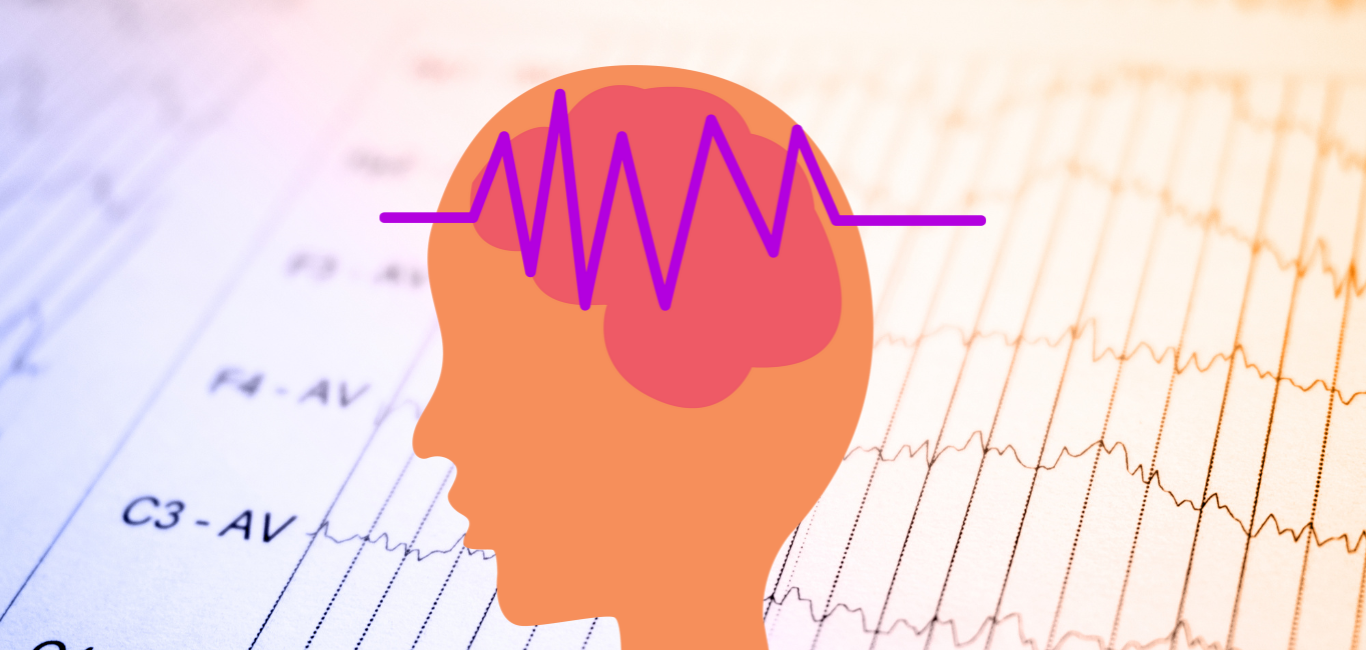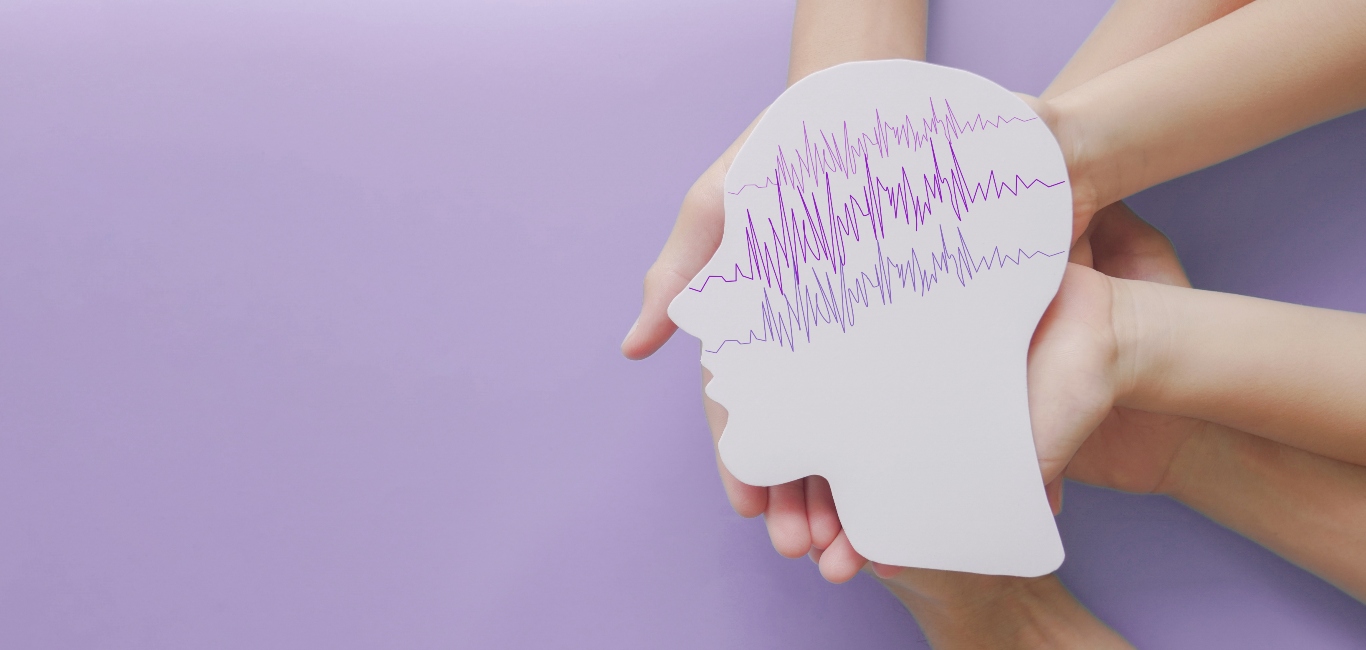
Preeti Singh can take your breath away.
The 51-year-old from Chandigarh is an author, a therapist, a single mother and a caregiver to her ailing father — sailing through all these roles with aplomb. For 49 years she has also been living with epilepsy, and the attendant challenges the condition brings, such as frequent seizures and memory loss.
Yet, Singh has not let any of this come in the way of getting the most out of life.
She has been a prolific writer for the past 21 years and is a published author in the thriller, fiction and non-fiction genres.
When Happiest Health sat down for a conversation with her, a black furry head kept bobbing up and down, intent on being a part of the experience. That was her pet, Sizzler, who had been abandoned on the road due to epilepsy. Together they have taken care of each other and won hearts with their vivacity.
Where it all began
Singh, born into an army family and the younger of two siblings, sustained a head injury when a nurse dropped her right after birth.
Two years later, she turned blue while splashing around with her sister in a tub of water. That was when she had her first seizure and was subsequently diagnosed with epilepsy.
Seizures were frequent, sometimes once a month, at other times once in two months. However, her mother kept a close watch, logging every detail, and educating her teachers so they could help if she had a seizure in school. Singh was a protected child, but at the same time never felt she was special.
“At that time, I did not understand the stigma associated with epilepsy. My parents treated me very normally, and my sister and I were brought up as regular teenagers with restrictions,” she says.
School brought with it numerous challenges. There were days when she would fall asleep in class or forget names, all of which affected her studies.
Her parents, however, were understanding. “They were very soft towards me if I got tense about my school marks. They were not pushy because they were worried the stress could bring on a seizure.”
Despite the odds, Singh went on to become the school head and excelled in English, which eventually made her the author she is today. She participated in all school activities, so much so that she was referred to as the chota pataka (small firecracker).
The realisation and the acceptance
Like any other teenager, she looked forward to going out with friends and on trips. However, for her own protection, she was not allowed many simple experiences. Her childhood was scattered with hospital visits and varying doses of medication that rendered her drowsy and set off side effects like memory loss.
The true extent of her condition hit her on a day she was watching her favourite show, Star Trek. Upon approaching the television to change tapes in the VCR, she collapsed. The excitement of having friends had triggered a seizure.
Her seizures, which were initially confined to the safety of her own home, began making an appearance outside. They were not only debilitating, but also began to get embarrassing when the hampered her self-esteem and left her feeling terrible.
When the only way is forward
But wait, here we are talking about a woman who has spoken at conferences and given speeches to the media. Ask her about it, and she says, “Today when I enter a conference hall I enter proudly. When I give speeches to the media, I first say I am sorry that I stammer. But that’s something I’ve overcome. I’m not embarrassed about it anymore. It’s something that’s become a part of me.”
Intent on surpassing her limitations she earned a degree in journalism and education, after which she worked as a teacher and a content writer, till she finally found her calling as a novelist.
At the age of 32, Singh walked out of her marriage which was riddled with violence due to her condition. She left with her toddler to make it on her own, and she is proud that she did that with self-confidence. Her daughter is now all set to pursue a medical degree from USA this year.
Life has a way of dropping one nasty surprise after another on the porch. The emotional discord and challenges that came knocking on her door did not cease and her relationship with health kept worsening.
At one point, fed up with all the pills she had been taking for epilepsy, diabetes and hypertension, she flushed the medication down the drain and refused to take any due to the stress of her divorce. Then one day she had six to seven seizures. That was when her doctor gave her a reality check, “I realised then that my medicines were like my armour,” she reminisces.
Today, despite being assuaged with the daily battles of life, and tackling memory loss due to epilepsy, Singh has found tricks to help her in these situations. She has a close group of people whom she calls when she forgets her ATM pin or other important matters and keeps a tracker on her phone for every little detail.
Trailblazing ahead
A few years ago, the startling loss of her friend’s son due to SUDEP (Sudden Unexpected Death in Epilepsy) was her wake-up call. “I said, ‘I have the talent, I have the disease, and I have the knowledge. I need to make people aware. And I must write a book on this,’” says Singh.
In 2020 she launched her book, Of Epilepsy Butterflies: Flying beyond Stigma, where she shares stories of other warriors of epilepsy who have lived, loved and excelled.
Through her book, and as a peer at Soul Up (an organisation that moderates therapist-mediated peer conversations) she is bringing light into the lives of others, and awareness of the stigmas that cloud epilepsy.
As our conversation comes to a close, her father who has dementia calls out. She takes a minute to attend to him and returns with the same vigour. Her smile does not fade, and her energy remains infectious. Epilepsy maybe a debilitating condition but is no deterrent to living a full life.
“God has given each one of us a gift. You need to open that gift. Find that thing you are good at, hone it and let it open the doors for you. Let people know that epilepsy is only a small part of your life. There is so much more to you,” she says signing off.
Key Takeaways:
- The importance of family support and logging details of events
- Creating awareness of the people around who may be involved
- Epilepsy need not be detrimental to relationships and one can lead a full life with it
- One’s life has many aspects, and they can be honed and highlighted for a fulfilling journey

















